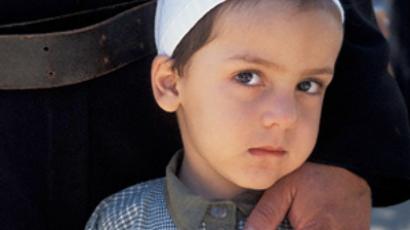Israeli government to deport 400 children
The situation with 400 immigrant workers’ children to be deported from Israel by the government to preserve what they call “the Jewish character of the state” has many people questioning what it means to be Israeli.
Most of their families live thousands of miles away. For them Israel is the only world they know. Born in Israel, they speak Hebrew, their friends are Israeli and they understands precious little about the place they are about to be sent to. Despite this, they are not treated as citizens of the country.
Over recent years, about 40,000 Filipinos were lured with the dream of work and a new life in the Promised Land. But if a Filipino woman becomes pregnant, she might be fired and her visa cancelled.
For months now Israelis have been torn over what to do about the future of hundreds of children who are born and raised in Israel, but who are not considered Israeli citizens.
Most of the children’s parents arrived in Israel in the early 1990s. They replaced cheap Palestinian labor that was becoming harder for Israelis to access. Curfews and road blocks had made it difficult for Palestinians to get permits to work in Israel. That is why today, as many as half a million foreign workers live in Israel, earning much more than they would back home. But the pay-off is the uncertainty that now clouds their children’s future.
The Interior Ministry says it needs to deport these children, because there are already so many illegal immigrants in the country. It says that their presence here threatens the Jewish character of the state. It is a controversial decision that has many here asking why children should have to pay the price for the government’s lack of clear policy.
And the anger of many has spilled over into the streets. After months of thinking it over, the Israeli government now says it will deport 400 foreign children who do not match strict criteria that would have allowed them to stay in Israel. These include living in Israel for five years, being part of the school system and having parents with valid work permits.
Israeli Interior Minister Eli Yishai has said it straight: “The holiday is over.”
“They make ten times more money here than they do in other countries, like Armenia, for example. Enough with this hypocrisy!” the Minister called.
“Will any of these children stand up and shout – stop talking rubbish, they will return to their families. That is where they need to be,” he said.
But protestors say it is by expelling children that very character of the Jewish State is threatened.
Rotem Ilan, the Head of Advocacy of Israeli Children Organization, acknowledged that “For me personally it is knowing these children – working with them already for three years – seeing them and understanding that they are not only Israeli, but they are the best Israelis because they love this country and they just want to contribute and be a part of us. So I really can’t understand [how] anyone that really knows them can stand aside and let them be deported from their homeland.”
“Its very, very important that the democratic part of Israeli public opinion will make its voice very loud and very clear and press the politicians to make the right decision,” Dov Kheinen, Member of Israeli Parliament, told RT.
Israeli law says that every Jew around the world has the right to Israeli citizenship, but for 400 children threatened with deportation, that citizenship is a distant reality.
Actually, these children have no legal status in Israel, shared Yonatan Shahan of the Israeli Children Human Rights Organization, because according to the Israeli legislation if an immigrant gives birth to a child she loses her visa.
As for public opinion on the case, “Actually the situation now is that, besides the Minister of Interior [Eli Yishai], no one objects to giving these children legal status, and he is the only one who really wants to deport them.”
The reason not to grant citizenship to some of the children born in Israel is political, believes Shahan, but he thinks that the government can set new criteria and grant these children residency, and later, when they reach 21 years of age, citizenship.
“It is important to say that Israel has no immigration law that was made by the parliament, it is all regulations of the Ministry of Interior. We hope that one of the fruits of this struggle will be that Israel will have a migration regulation made by the Knesset.”













